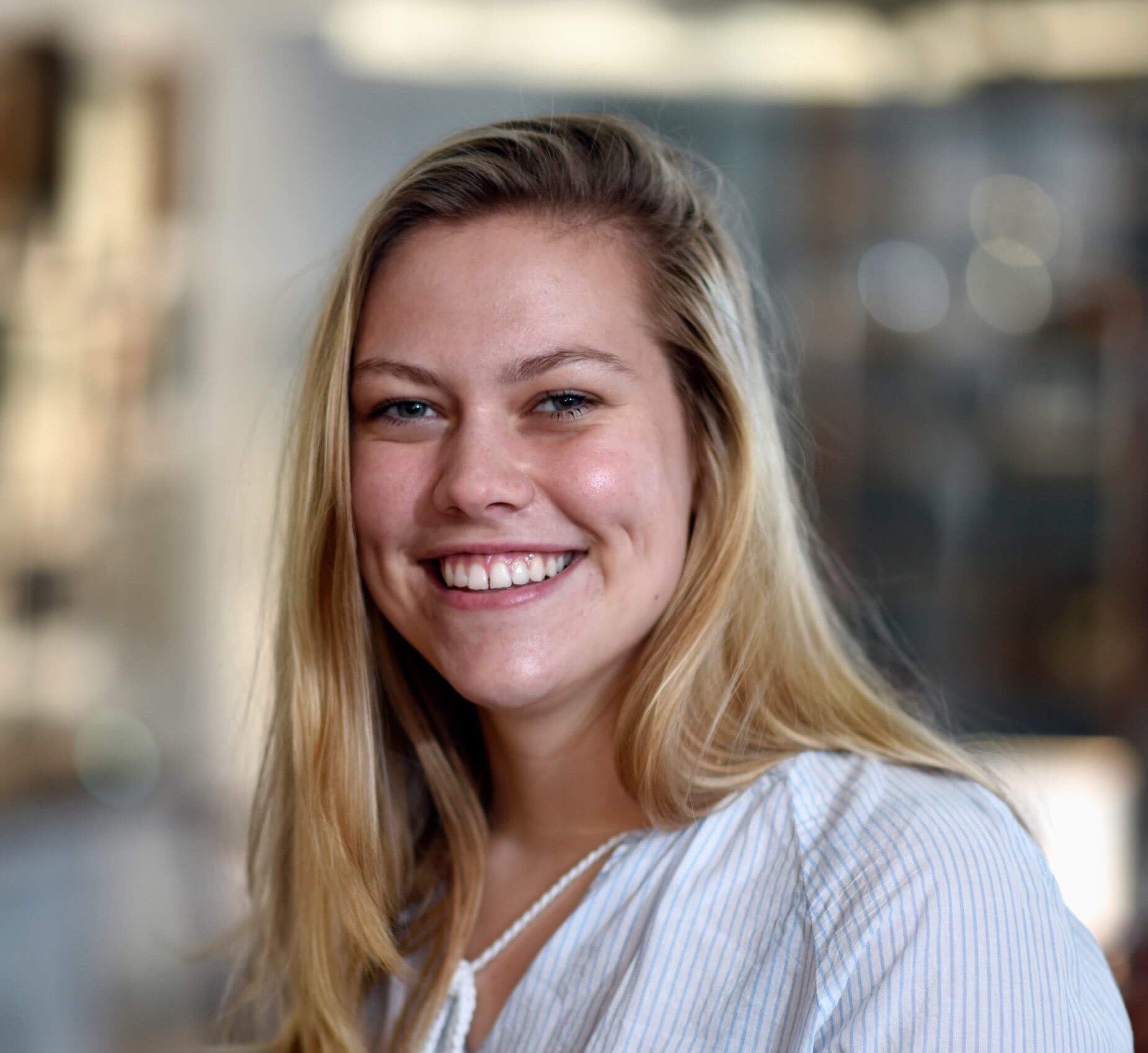By Taylor Phillips, CCL Student Staff
Kseniya Anishchenko (Sid Richardson ‘19) is a prime example of a Rice student who left their mark on campus. In 2017, Kseniya, a Biosciences major, made the decision to complete a Center for Civic Leadership Capstone project after participating in and coordinating Urban Immersion. For her project, Kseniya created a pilot program with 18 Rice student volunteers to visit the homes of people with dementia experiencing social isolation. Today, the Rice University chapter of the Alzheimer’s Buddies program boasts 30 volunteers and partnerships with two Houston-area memory care facilities.
“My grandmother had dementia and she was socially isolated living in Russia [since] my whole family lives here and I got to hear about her experiences first hand. Dementia is very stigmatized and her neighbors didn’t really want to talk to her anymore so [she felt] very isolated. Social isolation contributes to a lot of really bad symptoms and makes every disease worse – especially dementia – so that’s what prompted me [to do this project],” Kseniya said as she reflected on her motivations for her Capstone project.
With her Capstone project, Kseniya was able to combine her previous experience researching Alzheimer’s disease and interest in medicine through the lens of civic engagement.
The CCL Capstone provides students a unique opportunity to complete a civic project alongside a community partner through funding from the Rich Family Endowment. Through the Capstone project and her interactions with the CCL, Kseniya was shown the ropes of how to build an effective community partnership program.
“I could have done the project by myself but the Capstone in the fall semester was learning about social issues and how to work with community partners. I really liked that structure because it wasn’t just me being thrown into this [project]. I was learning how to interact with community organizations, how to remain accountable, and how to interact with communities in responsible and ethical ways – that was the main reason I wanted to do the Capstone. Otherwise, I think I would have just been floundering in the project trying to figure out how to do it in an ethical way,” she said.
In the midst of coordinating with volunteers and building relationships with community partners, Kseniya had many experiences that helped to shed more light on the underlying issues of dementia care. In fact, on her way to see her Alzheimer’s buddy, a single conversation changed Kseniya’s career trajectory. This conversation helped her to gain more clarity on her goals for her future career as a physician to address racial disparities present in health care.
When asked about any particular experiences that stood out to her, Kseniya recounted a conversation she had on her ride to a partner memory facility, “I was in an Uber to see my buddy in the Alzheimer’s Buddies program and the driver said ‘Does Alzheimer’s affect Black people or Hispanic people? Because it’s only white people [seen in nursing homes].’ That really made me think about how there’s so many hidden things that we don’t think about. There are people in their homes and [are] very isolated. I’m very interested in minority health because it is often ignored and we don’t think about it very much. I think that moment was when the lightbulb went off in my head and I realized that I will be caring for patients and they’re not just going to be white patients – it is going to be everyone and every race and ethnicity.”
Kseniya is now a first year medical student at University Colorado School of Medicine and continues to find ways to engage with the community and minority health despite her busy medical school schedule. Currently, she is doing research alongside her professor in surveying the need of skin care in Native American communities to later create a community intervention. Kseniya believes that without her experience with the CCL Capstone, she would not be pursuing a career that centers around community health.
In addition to her research on community and minority health, Kseniya has also been reflecting on how the issue of racism intersects with many aspects of our daily lives. Now, as a member of the Owl Vision Grant Alumni Selection Committee and mentor, Kseniya has explored the ways that issues like racism, COVID-19, and the election intersect. One big example seen this year is how people of color are disproportionately affected by COVID-19.
“[Racism] doesn’t just affect how some people live. It affects COVID and it affects elections. I think it’s important to see that racism affects everything in our lives,” Kseniya emphasized.
“Whether or not they can [vote] because of voter suppression, people of color are disproportionately affected by COVID-19, so I think teaching students to mobilize groups and really learn that whatever they tackle in their lives, racism is going to be a part of that and they can have a part in making more equity. Whether it's healthcare or whether you’re going to be a politician or lawyer, and whatever else a Rice student wants to be, I think that’s what I really like about this program, it’s so intersectional.”
Kseniya also finds it meaningful that the program is centered around youth involvement. After seeing the pattern of low voter turnout for young Americans, Kseniya hopes that this program will help to encourage youth to be more civically engaged and vote in this year’s presidential election. Regardless of young people’s ability to vote, Kseniya believes that the Owl Vision Grant provides a great opportunity to amplify their voices.
“I didn’t know how to get involved with Rice after becoming an alum, so it’s a great experience to still see what’s going on with Rice, help people get through difficult circumstances, and become civic leaders. I think that’s what this is all about – to empower Rice students and youth to make a difference. Even if it’s small, it’s still a difference.”

